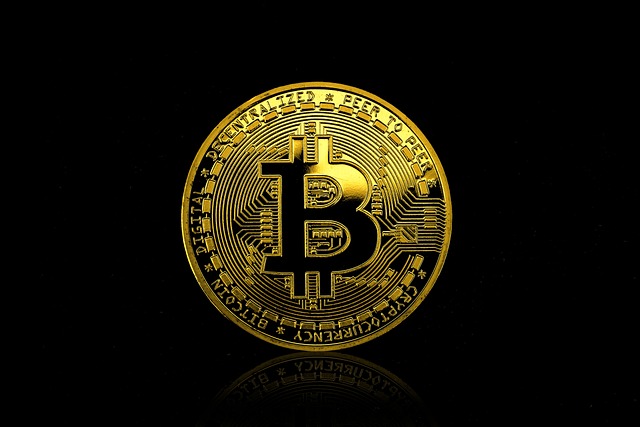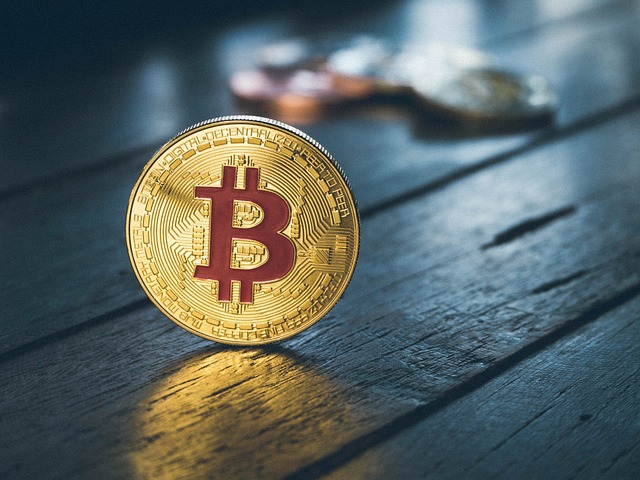Decentralized Finance Architecture: Mapping the Future of Finance
Decentralized Finance Architecture: Mapping the Future of Finance

The Rise of Decentralized Finance
Decentralized finance, also known as DeFi, is gaining significant momentum in recent years. It is a financial system that operates on blockchain technology, eliminating the need for intermediaries such as banks. The rise of DeFi can be attributed to several factors.

Alongside the increased accessibility and transparency, the rise of DeFi also brings forth new opportunities for financial innovation. Traditional finance has long been dominated by centralized institutions, limiting the scope of creativity and limiting the speed of adaptation. With decentralized finance, developers and entrepreneurs are exploring innovative ways to create and exchange financial products. This has given rise to a plethora of decentralized applications (DApps) that offer services such as decentralized lending, borrowing, and trading. As more individuals and institutions embrace DeFi, the financial landscape is rapidly evolving, paving the way for a new era of financial independence and innovation.
Understanding the Basics of Decentralized Finance
In the world of finance, centralized systems have long been the norm. However, a new wave of technology is beginning to revolutionize the way we manage our money. Enter decentralized finance, also known as DeFi. At its core, DeFi is a decentralized financial system that operates on a blockchain, allowing for secure and transparent transactions without the need for intermediaries such as banks or traditional financial institutions.
One of the key concepts in DeFi is the use of smart contracts. These are self-executing contracts that automatically enforce the terms and conditions of an agreement. With smart contracts, there is no need for a middleman to oversee and enforce the agreement. Instead, everything is coded into the contract itself, ensuring that the transaction is carried out as intended. This not only reduces the cost associated with intermediaries but also introduces a higher level of transparency and reliability to the financial system.
Exploring the Benefits of Decentralized Finance
Decentralized finance, often abbreviated as DeFi, brings a host of benefits that have the potential to reshape the financial landscape as we know it. One of the key advantages of decentralized finance is its ability to provide financial services to individuals who may have been excluded from traditional banking systems. With DeFi, anyone with an internet connection can access a wide range of financial tools, such as lending, borrowing, and investing, without the need for intermediaries or central authorities. This level of accessibility opens up new opportunities for individuals in underserved communities and developing countries, democratizing finance and paving the way for financial inclusion on a global scale.
Another notable benefit of decentralized finance is its transparency and security. Traditional financial systems often operate behind closed doors, leaving individuals with limited knowledge and control over their own finances. In contrast, DeFi operates on public blockchains, where every transaction and piece of data is recorded and can be verified by anyone.

Challenges and Risks in Decentralized Finance
Decentralized finance (DeFi) has gained significant traction in recent years, presenting users with exciting opportunities and innovations. However, it is not without its fair share of challenges and risks. One of the primary challenges in DeFi is its complexity. The intricate and technical nature of decentralized finance can make it difficult for newcomers to understand and navigate. This complexity stems from the various protocols, smart contracts, and blockchain technologies involved, all of which require a certain level of technical knowledge to comprehend fully.
Another significant challenge in decentralized finance is the lack of regulation and oversight. Unlike traditional finance, where regulatory agencies enforce rules and protect consumers, DeFi operates in a relatively unregulated landscape. While this lack of regulation provides a sense of freedom and autonomy, it also exposes users to greater risks. Without proper oversight, there is an increased risk of fraud, scams, and hacks in the DeFi space. Moreover, the absence of established legal frameworks can make resolving disputes and recovering lost funds a daunting task for users.
Navigating these challenges and mitigating risks is crucial for the long-term success and sustainability of decentralized finance. As the DeFi industry continues to evolve, it is essential for developers, investors, and users to remain vigilant, educate themselves about the potential risks, and implement effective security measures. Additionally, establishing regulatory frameworks that strike a balance between innovation and protection will be vital in fostering trust and widespread adoption of decentralized finance. Only by addressing these challenges can the true potential of DeFi be realized, transforming the traditional financial system as we know it.
Key Components of Decentralized Finance Architecture
Decentralized finance architecture relies on several key components to enable its functioning. One of the essential elements is the use of smart contracts. These self-executing contracts are coded on the blockchain network and automatically enforce predetermined conditions and actions without the need for intermediaries. Smart contracts ensure transparency, efficiency, and security in decentralized financial transactions. By eliminating the reliance on manual processes and traditional legal systems, smart contracts streamline activities such as lending, borrowing, and trading, making the entire process more accessible and cost-effective.
Additionally, another crucial component of decentralized finance architecture is decentralized exchanges. Unlike traditional centralized exchanges that require users to trust a third party with their assets, decentralized exchanges operate on the principles of transparency and user control. By leveraging blockchain technology and peer-to-peer networks, decentralized exchanges allow users to trade directly with one another without the need for an intermediating authority. This not only removes the risk of hacking or manipulation but also increases the speed and efficiency of transactions.

Smart Contracts: The Building Blocks of Decentralized Finance
Smart contracts are the fundamental building blocks of decentralized finance. These self-executing contracts carry out the terms of an agreement between parties without the need for intermediaries. In a traditional financial system, you would rely on banks or other institutions to enforce and validate transactions. However, smart contracts remove the need for trust in third parties by relying on the transparency and immutability of blockchain technology.
With the use of smart contracts, the execution of financial agreements becomes automated, transparent, and efficient. These contracts are created using programming languages and are stored on a blockchain, ensuring that they cannot be tampered with or altered. This technology opens up a world of possibilities for decentralized finance, as it enables automated processes such as lending, trading, and asset management. Smart contracts have the potential to revolutionize the way we conduct financial transactions, making them faster, cheaper, and more accessible to a wider range of individuals.
The Role of Blockchain in Decentralized Finance
Blockchain technology plays a pivotal role in the world of decentralized finance (DeFi). At its core, blockchain is a distributed and immutable ledger that records transactions and stores them in a network of computers. This decentralized nature of blockchain ensures transparency, security, and trust in the financial ecosystem. By removing the need for intermediaries like banks or governments, blockchain enables peer-to-peer transactions, making DeFi more accessible and inclusive to anyone with an internet connection.
One of the key advantages of blockchain in DeFi is its ability to facilitate smart contracts. These self-executing contracts are built on top of blockchain networks and automatically enforce the terms and conditions agreed upon by the involved parties. With smart contracts, traditional financial services such as lending, borrowing, trading, and insurance can be seamlessly executed without the need for intermediaries. This not only eliminates the need for trust in centralized authorities but also reduces the costs and time associated with executing such transactions. Overall, blockchain technology lays a strong foundation for the growth and innovation of decentralized finance, empowering individuals with greater control over their finances.
Decentralized Exchanges: Revolutionizing Trading
Decentralized exchanges, also known as DEXs, have emerged as a game-changer in the world of trading. Unlike traditional exchanges that rely on intermediaries to match buyers and sellers, DEXs enable users to trade directly with each other, thanks to the power of blockchain technology. This peer-to-peer approach not only eliminates the need for intermediaries, but it also enhances security and privacy, offering users full control over their funds.
One of the primary advantages of decentralized exchanges is their ability to operate 24/7, without any central authority or geographical limitations. This means that traders can engage in buying and selling assets at any time, without having to wait for market opening hours. Moreover, DEXs foster a greater sense of financial inclusivity, allowing anyone with an internet connection to participate in trading, irrespective of their location or background. By removing barriers to entry, decentralized exchanges have revolutionized the trading landscape, empowering individuals to take control of their financial decisions.
Lending and Borrowing in a Decentralized Financial System
Lending and borrowing play a crucial role in any financial system, and decentralized finance is no exception. In a decentralized financial system, individuals have the opportunity to lend their assets directly to borrowers without the need for intermediaries such as banks or financial institutions. This peer-to-peer lending model brings a level of transparency and efficiency that is hard to achieve in traditional finance.
One of the main benefits of lending and borrowing in a decentralized financial system is the ability to access capital without going through the traditional loan application process. Borrowers can simply submit a loan request, and lenders can choose to fund the loan based on their own criteria and risk appetite. This opens up opportunities for individuals who may not have a long credit history or meet the stringent requirements of traditional lenders. Additionally, the decentralized nature of the system ensures that the borrowing and lending process is carried out in a secure, tamper-proof manner, thanks to the underlying blockchain technology.
In a decentralized financial system, lenders have the potential to earn attractive returns on their assets by providing liquidity to borrowers. Unlike traditional finance, where the interest rates are set by financial institutions, in the decentralized finance space, interest rates are determined by supply and demand dynamics. This means that lenders have the flexibility to set their own interest rates, leading to a more competitive and fair lending environment. Borrowers, on the other hand, can benefit from lower interest rates compared to traditional loans, as they are not subject to the overhead costs associated with intermediaries. Overall, lending and borrowing in a decentralized financial system have the potential to democratize access to capital and reshape the lending landscape as we know it.
• Lending and borrowing in a decentralized financial system allows individuals to lend their assets directly to borrowers without the need for intermediaries like banks.
• This peer-to-peer lending model brings transparency and efficiency that is hard to achieve in traditional finance.
• Borrowers can access capital without going through the traditional loan application process, simply by submitting a loan request.
• Lenders have the flexibility to fund loans based on their own criteria and risk appetite.
• The decentralized nature of the system ensures secure and tamper-proof borrowing and lending thanks to blockchain technology.
• Lenders have the potential to earn attractive returns on their assets by providing liquidity to borrowers in a decentralized financial system.
• Interest rates in decentralized finance are determined by supply and demand dynamics, allowing lenders to set their own rates leading to a more competitive lending environment.
• Borrowers can benefit from lower interest rates compared to traditional loans as they are not subject to overhead costs associated with intermediaries.
• Overall, lending and borrowing in a decentralized financial system has the potential to democratize access to capital and reshape the lending landscape.
The Potential Impact of Decentralized Finance on Traditional Finance
Decentralized finance, also known as DeFi, has the potential to revolutionize the traditional financial system in several ways. One of the most significant impacts is the removal of intermediaries. In traditional finance, banks, brokers, and other financial institutions act as intermediaries, adding a layer of complexity and cost to transactions. However, in DeFi, transactions occur directly between parties using smart contracts and blockchain technology. This eliminates the need for intermediaries, reducing costs, and increasing transaction speed.
Another potential impact of DeFi on traditional finance is the democratization of financial services. Traditional finance is often inaccessible to individuals without significant wealth or a good credit score. However, with DeFi, anyone with an internet connection can access financial services such as lending, borrowing, and trading. This opens up opportunities for individuals who have been excluded from the traditional financial system, promoting financial inclusion and empowering individuals to have greater control over their finances. Moreover, the transparency and immutability of blockchain technology used in DeFi ensure that transactions are recorded and can be verified by anyone, increasing trust and reducing the risk of fraud.
What is decentralized finance (DeFi)?
Decentralized finance, or DeFi, refers to a financial system that operates on a blockchain network, eliminating the need for intermediaries like banks or financial institutions. It allows users to access financial services, such as lending, borrowing, and trading, in a decentralized and transparent manner.
How does decentralized finance differ from traditional finance?
In traditional finance, transactions and services are typically facilitated by centralized institutions like banks, which can be slow, costly, and prone to restrictions. DeFi, on the other hand, leverages blockchain technology to enable peer-to-peer transactions, automated smart contracts, and greater financial inclusivity.
What are the benefits of decentralized finance?
DeFi offers several advantages, including faster and cheaper transactions, increased financial accessibility for unbanked populations, greater control and ownership of assets, transparent and auditable processes, and the potential for innovation in financial products and services.
What are the challenges and risks associated with decentralized finance?
As with any emerging technology, DeFi faces challenges such as scalability, security vulnerabilities, and regulatory uncertainties. Additionally, the reliance on smart contracts introduces risks of coding errors or exploits that could result in financial losses. It is important for users to exercise caution and conduct thorough research before participating in DeFi projects.
What are smart contracts in the context of decentralized finance?
Smart contracts are self-executing agreements coded on a blockchain network. They automatically enforce the terms and conditions of a contract without the need for intermediaries. In DeFi, smart contracts play a crucial role as they enable the creation and execution of various financial services, such as lending, borrowing, or trading, in a trustless and automated manner.
How does blockchain technology contribute to decentralized finance?
Blockchain technology provides the foundation for decentralized finance by ensuring transparency, security, and immutability of transactions. It enables the creation of a tamper-proof ledger that can be accessed by anyone, allowing for greater trust and efficiency in financial activities.
What are decentralized exchanges (DEXs)?
Decentralized exchanges, or DEXs, are platforms that facilitate peer-to-peer trading of digital assets without the need for intermediaries. Unlike centralized exchanges, DEXs allow users to retain control of their funds and trade directly with others on the blockchain, promoting greater privacy and security.
How does decentralized finance impact lending and borrowing?
DeFi introduces innovative lending and borrowing protocols that operate without intermediaries. Through decentralized lending platforms, individuals can lend out their crypto assets and earn interest, while borrowers can access funds without requiring approval from banks. This opens up new opportunities for individuals and businesses to access capital in a more inclusive and efficient manner.
What potential impact could decentralized finance have on traditional finance?
Decentralized finance has the potential to disrupt traditional finance by reducing the reliance on centralized institutions, introducing greater financial inclusion, and providing innovative financial services. While it is still in its early stages, DeFi has the capability to reshape traditional finance by offering more accessible, efficient, and transparent financial solutions.
Todays Featured Product:
Buy, exchange and grow your crypto securely with a Ledger hardware wallet, combined with the Ledger Live app. It’s never been easier to keep your crypto safe and accessible. Buy direct from Ledger.com and get todays Special Offers Here.




